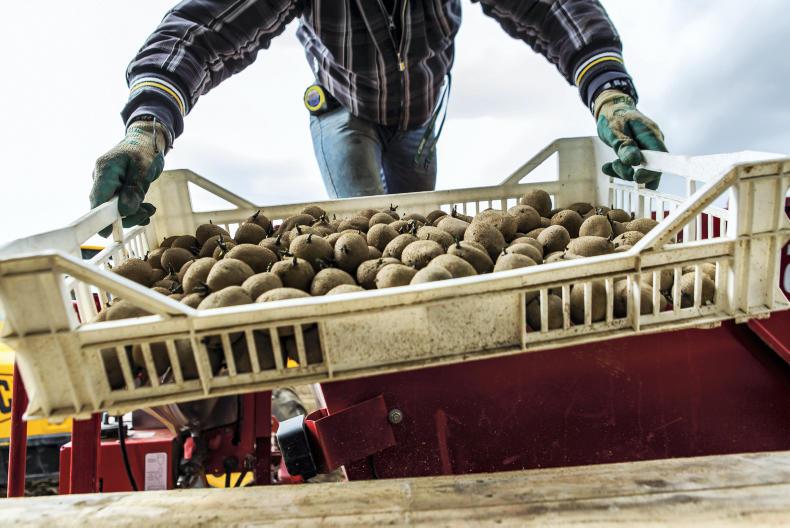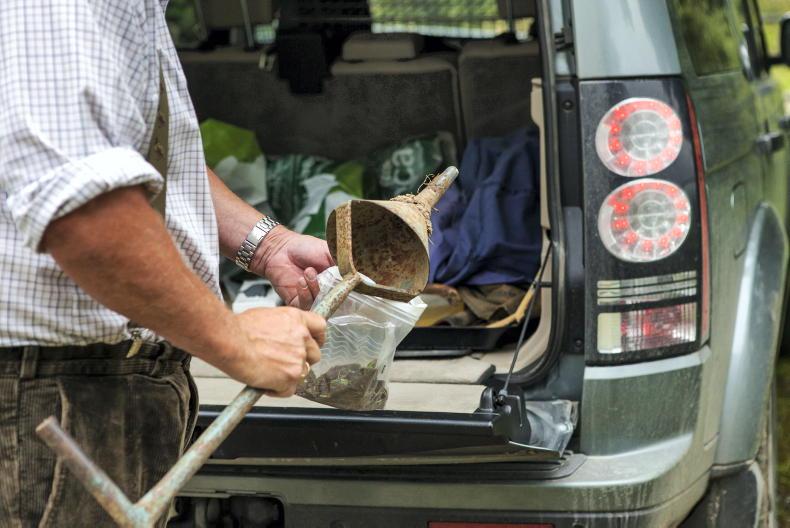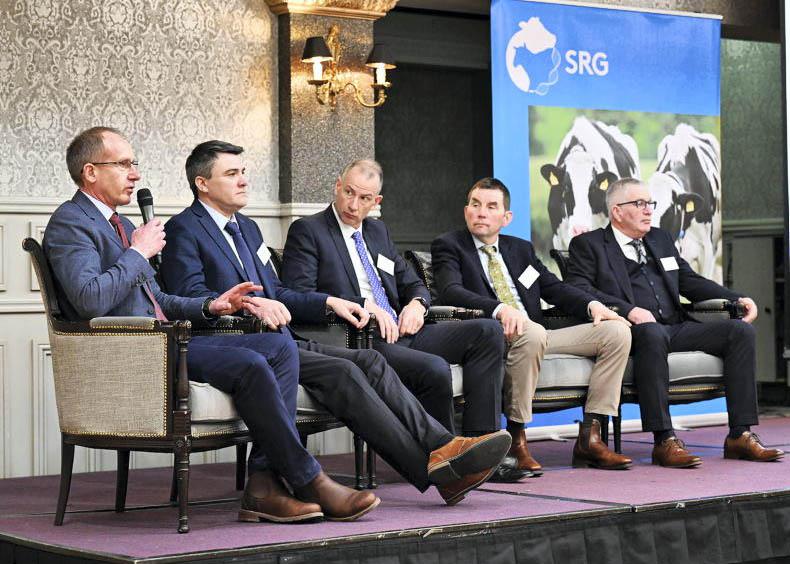Concerns surrounding the impact of a no-deal Brexit escalated within the NI agri-food sector this week, when DAERA officials briefed industry representatives on preparations for the UK leaving the EU without a withdrawal agreement. On Tuesday, DAERA officials met representatives from the NI arable and vegetable sectors, and outlined how the trade of plants and plant-based products would operate if the UK leaves the EU without a deal.
Speaking to the Irish Farmers Journal afterwards, industry representatives said that exports of certain products to the EU, including the Republic of Ireland, will stop overnight, regardless of tariffs.
One example is the export of both ware and seed potatoes, where the EU will no longer recognise UK regulatory standards once it becomes a third country. The Irish government’s position remains that discussions around this will not take place until after the UK leaves the EU. It is understood that a similar problem will face certain waste materials, meaning poultry litter, slurry and some classifications of by-products from meat factories will not be able to move from NI to the EU. DAERA officials are also to meet stakeholders in the meat and dairy sectors, including members of the Ulster Farmers’ Union livestock committees. The briefing will surround the export of animal-based products in the event of a no-deal.
A key issue here is the export health certificates that will be required to accompany every consignment of animal origin product moving from NI to the EU in the event of a no-deal Brexit. These certificates have to be filled in by the exporter and countersigned by a department vet.
According to business group Manufacturing NI, the number of export health certificates needed in NI each year will increase from 18,000 at present, to over two million in the event of a no-deal Brexit.
A report published last week by academics in the Food Research Collaboration raised significant concerns about the availability of vets in NI to manage the expected increase in health certificates.
“Servicing the anticipated demand is not feasible, and certainly not by 31 October. There are insufficient qualified professionals and insufficient time and resources to recruit and train new ones,” the report reads.
There is now growing pressure on DAERA to state publicly how it plans to manage issues surrounding trade in a no-deal Brexit.
“We are aware DAERA staff are currently working on no-deal policy options and we are calling on the department to make these publicly available urgently,” said Ulster Farmers’ Union president Ivor Ferguson.
Read more
Lobbying intensifies on no-deal tariffs
A no-deal Brexit bill soon adds up
Concerns surrounding the impact of a no-deal Brexit escalated within the NI agri-food sector this week, when DAERA officials briefed industry representatives on preparations for the UK leaving the EU without a withdrawal agreement. On Tuesday, DAERA officials met representatives from the NI arable and vegetable sectors, and outlined how the trade of plants and plant-based products would operate if the UK leaves the EU without a deal.
Speaking to the Irish Farmers Journal afterwards, industry representatives said that exports of certain products to the EU, including the Republic of Ireland, will stop overnight, regardless of tariffs.
One example is the export of both ware and seed potatoes, where the EU will no longer recognise UK regulatory standards once it becomes a third country. The Irish government’s position remains that discussions around this will not take place until after the UK leaves the EU. It is understood that a similar problem will face certain waste materials, meaning poultry litter, slurry and some classifications of by-products from meat factories will not be able to move from NI to the EU. DAERA officials are also to meet stakeholders in the meat and dairy sectors, including members of the Ulster Farmers’ Union livestock committees. The briefing will surround the export of animal-based products in the event of a no-deal.
A key issue here is the export health certificates that will be required to accompany every consignment of animal origin product moving from NI to the EU in the event of a no-deal Brexit. These certificates have to be filled in by the exporter and countersigned by a department vet.
According to business group Manufacturing NI, the number of export health certificates needed in NI each year will increase from 18,000 at present, to over two million in the event of a no-deal Brexit.
A report published last week by academics in the Food Research Collaboration raised significant concerns about the availability of vets in NI to manage the expected increase in health certificates.
“Servicing the anticipated demand is not feasible, and certainly not by 31 October. There are insufficient qualified professionals and insufficient time and resources to recruit and train new ones,” the report reads.
There is now growing pressure on DAERA to state publicly how it plans to manage issues surrounding trade in a no-deal Brexit.
“We are aware DAERA staff are currently working on no-deal policy options and we are calling on the department to make these publicly available urgently,” said Ulster Farmers’ Union president Ivor Ferguson.
Read more
Lobbying intensifies on no-deal tariffs
A no-deal Brexit bill soon adds up









SHARING OPTIONS